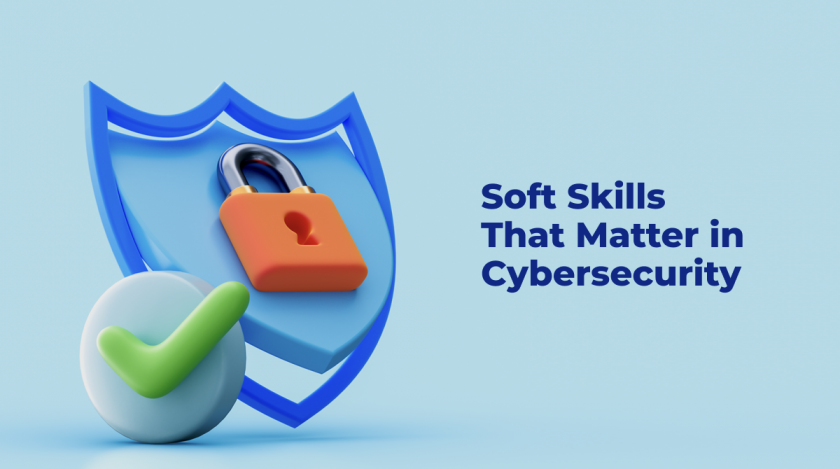When thinking of cybersecurity professionals, technical expertise, programming skills, and mastery of complex computer systems come to mind.
However, landing a top-paying job in this ever-evolving field takes more than just including your degree on your resume and showcasing your technical abilities. Organizations are placing a greater emphasis on non-technical abilities like communication, leadership, and problem-solving.
These skills are vital to cybersecurity experts, and they can help them earn higher salaries and advance in their careers.
The Importance of Communication Skills in Cybersecurity
Effective communication is a crucial skill for cybersecurity professionals. They must be able to communicate complex technical concepts to stakeholders who may not have a technical background, such as business executives or government officials.
In addition, cybersecurity experts must be able to communicate security risks to non-technical employees in a way that is easy to understand and actionable.
Moreover, effective communication within their teams is critical. This includes collaborating with colleagues from different departments, such as IT, legal, and compliance, to identify and mitigate security risks.
Communication is simply essential to ensure everyone is on the same page and working towards a common goal.
Leading in the Cybersecurity Industry: An Essential Skill for Success
Leadership abilities are also becoming increasingly important in the sector. Leading and managing teams becomes increasingly important as the field becomes more complex and the risks become greater.
Digital security leaders must be able to inspire their teams, delegate tasks, and make key decisions under pressure.
Additionally, they must be able to align their cybersecurity strategies with the broader goals of the organization.
The ability to communicate how digital security fits into the company’s mission, vision, and values is crucial. Identifying potential threats requires them to stay on top of the latest trends and developments.
By staying ahead of emerging threats, cybersecurity leaders can ensure their corporations are well-prepared to face any challenges that come their way.
A Must-Have for Cybersecurity Experts: Problem-Solving Skills
Professionals face complex and ever-evolving security threats on a daily basis. To be successful, they must be able to identify and analyze root causes and develop effective solutions quickly. This requires mastering a range of skills — from incident response to threat anticipation.
Being proactive and thinking creatively is vital. To stay ahead of cybercriminals, they must develop innovative solutions and anticipate potential threats.
This requires a combination of technical expertise, problem-solving, and adaptability.
Effective problem-solving requires a proactive and creative mindset. Cybersecurity experts need to anticipate potential threats and develop innovative solutions that can keep their organizations ahead of cybercriminals. This demands a combination of critical thinking, analytical skills, and the willingness to experiment with new approaches to cyber risk management and security control validation.
By consistently improving their problem-solving abilities, professionals can better equip their employers to handle any security issue that arises.
Advancing Your Career and Earning Higher Salaries
Non-technical skills like communication, leadership, and problem-solving are not only important for succeeding in the industry, but they can also help individuals advance their careers and earn higher salaries.
This is because corporations recognize the value of these abilities in the modern cybersecurity landscape and are willing to pay a premium for candidates who possess them.
For example, professionals who have excellent communication skills can take on leadership roles that require collaboration with business executives or government officials.
Cyber risk management leaders who can effectively communicate the organization’s cybersecurity strategy and align it with broader business goals can become highly valued by their company.
Similarly, those with strong leadership abilities can take on management positions, overseeing teams and contributing to the development of the corporation’s overall cybersecurity strategy.
Finally, individuals with exceptional problem-solving skills can become highly sought after by institutions that need to respond quickly and effectively to emerging security threats. They can become valuable members of incident response teams or take on roles as cybersecurity consultants or advisors.
Generally, cybersecurity experts who possess non-technical skills are able to command higher salaries than those who only possess technical skills.
For example:
- Cybersecurity Analyst – Average Salary: $79,000 per year
- Cybersecurity Consultant – Average salary: $110,000 per year
- Penetration Tester – Average salary: $98,000 per year
- Cybersecurity Architect – Average salary: $177,000 per year
- Security Engineer – Average salary: $132,000 per year
- Security Manager – Average salary: $138,000 per year
- Chief Information Security Officer (CISO) – Average salary: $216,000 per year
Please note that these salaries can vary based on factors such as location, experience, and education level.
Final Word
The security industry is rapidly evolving and professionals need more than just technical expertise to succeed. Communication, leadership, and problem-solving skills are becoming increasingly important and can help you advance your career and earn a higher salary.
By investing in these areas, you enhance effectiveness, bolster organizational security, and unlock your cybersecurity potential.











